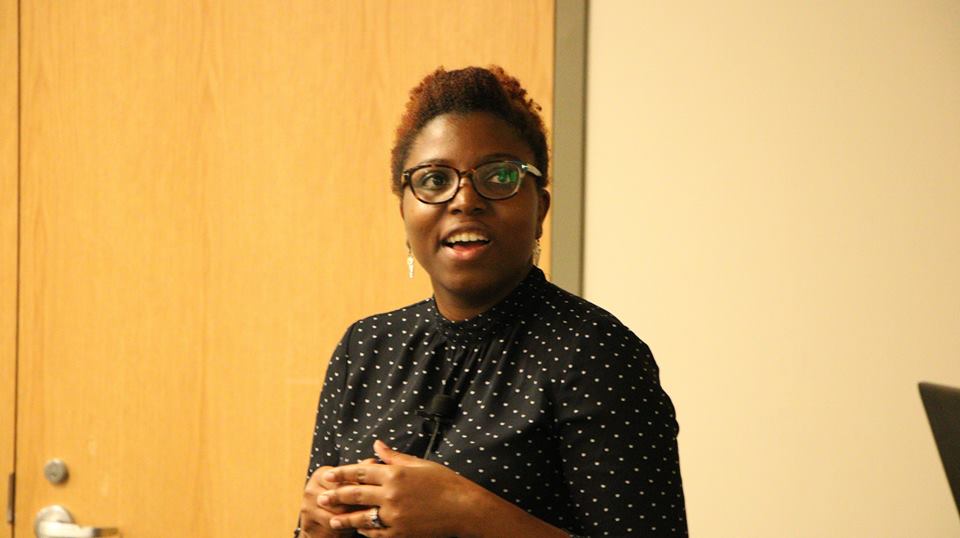Self-care is essential for your well-being, UD prof. tells caregivers
“Self-care is not selfish,” said Dr. Tia Barnes, quoting lifestyle consultant Eleanor Brownn to an audience of family and professional caregivers.
Barnes, an associate professor in UD’s Department of Human Development and Family Sciences, spoke at yesterday’s Lunchtime Learning, the latest in CDS’s series of events open to the public that address current issues in the disability community.
After noting the personal and professional dangers that stem from burnout, which can occur when caregivers spend too much energy on others’ well-being at the expense of their own, Barnes led the audience through self-evaluations, then offered a three-step strategy to reduce stress and strike a better balance between spending time on others and spending time on oneself.
First, she had everyone analyze their daily schedule to determine how much time in a normal workday they spend doing things they enjoy. Next, she suggested listing activities that contribute to their physical, emotional, intellectual or spiritual well-being, cautioning that sometimes things we think we enjoy prove to be stressful on reflection.
Finally, she encouraged everyone to look for opportunities in their daily schedules to insert the activities they listed. She said it was essential to identify barriers in life that might block self-care, such as the difficulty in turning down others who request your time, and find ways around them.
Several audience members brought up the value of respite care, in which another person provides primary caregivers a temporary break by assuming their caregiving responsibilities. They mentioned that Easterseals and the Division of Developmental Disabilities Services have programs that can help caregivers defray the cost of respite care.
This entry was posted in About CDS, News, News from CDS and tagged Caregivers, self-care, stress.

